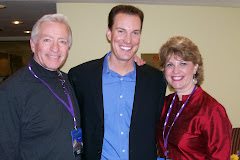Friday, June 27, 2008
Thursday, June 26, 2008
Tax Advantages of a Home Based Business
What Kind Of Tax Advantages Do Home-Based Businesses Enjoy?
You have probably thought of many of the benefits of running your own successful accounting and bookkeeping service. From the independence of working for yourself to making better income than you may currently make, there are many reasons that starting a home-based business might be right for you. One consideration that you might not have taken into account is the tax advantages that you will enjoy with a business run out of your home. Let's explore these qualifying deductions, starting with the better-known ones.
The Home Office Deduction
The deduction that likely comes first to mind that home-based businesses can take advantage of is the "Home Office Deduction". The Home Office Deduction allows you to deduct some or all of the expenses of your office at home and related expenses.
To qualify for this deduction, your home office must be the principal place where your business is done. Secondly, the office space must be used exclusively for business use to qualify. For example, if you use your kitchen as your primary workspace, it is likely that you cannot take the home office deduction, assuming that you use it for personal use as well. To be on the safe side, set aside a room as your home office where possible. This will keep you on the safe side should the home office use ever come into question.
Detailed explanations of who qualifies for the Home Office deduction are defined in detail by the IRS themselves.
Building-Related Expenses
Repairs and improvements to your home office are completely deductible. For example, painting your home office is an expense that relates directly to doing business out of your home, so it is deductible in full.
Mortgage interest is deductible as a percentage of the total mortgage paid for your home. For instance, if your home office makes up 200 square feet of your home's 2,000 square feet total, you can write off up to 10% of the mortgage interest for your home as a business cost. Similarly, if you rent your home, the percentage of your home used exclusively for business use would also be deductible.
Property taxes paid for your home also qualify at the same percentage rate as the mortgage.
Furthermore, if you own your home, you can depreciate the appropriate share of the home over 39 years.
Note that home expenses not related to your business, such as landscaping costs, cannot be deducted, even if you are beautifying the appearance of your home to enhance its appearance for business purposes.
How Much Total Can You Deduct?
You can deduct at most in home expenses for your home-based business what its net profit is. Thus, if you don't make much net profit, neither will you be able to deduct many home office expenses. This covers expenses specific to your home itself, such as mortgage/rent and property taxes.
Security
You may deduct the business cost of security devices and monitoring fees as a percentage of the protected area used for business use of the entire protected area (normally the entire home). This is considered an indirect cost of doing business.
Insurance
If you own your home and pay home owner's insurance, you may deduct a percentage of that expense, as with mortgage or rent expenses. If you have additional insurance coverage that covers things specifically for the business, you may deduct these expenses in full as direct business expenses. This may include special riders on your insurance policy to protect business equipment used exclusively for your business.
Additionally, if you incur a loss that is not covered by insurance, if it is equipment used exclusively for your business, you can deduct the entire loss. If the property lost is for things used both for personal and business use, you may deduct just the percentage of business use.
Utilities
Using the same percentage that you can write off of your home calculated above, you can write off utilities such as electrical, gas, and other utilities as business expenses.
Transportation
If you work primarily out of your home, you can typically write off the transportation expense of getting to and from your clients' places of business and other business-related transportation costs.
Transportation as a deductible cost is one area where detailed records is critical. Typically, you will want to record the odometer mileage of your car before and after your trip to determine the number of miles traveled. Alternately, if you have places that you often travel to, you can just record the number of miles once and then multiply by the number of trips to determine total mileage This will prove much easier than recording each trip's mileage
Moving Expenses
If you move, you can deduct the business portion of the move. For example, if half of the items to be moved were business-related, you could deduct 50% of your moving expenses. Note that moving expenses apply to sole proprietors, LLC's, and S-Corporations only. They do not apply to C corporations.
If you have business-related moving expenses, use form 8829, "Expenses for the Business Use of Your Home" to report them.
Phones and Communications
For a home business, the first phone line into your home is considered by the IRS as a personal expense. Additional phone lines for business use, including cell phones used for your business, are tax deductible. Internet service provider fees or broadband costs such as high speed cable connections are deductible as a percentage of business use to total usage.
Meals and Entertainment
If you take a client or prospective client out to lunch and talk about your business, it is often tax deductible as a cost of doing business. If you are doing business out of town or at your convenience on a business-related task, you can typically deduct the amount of meals. If you are entertaining a client, the expenses related to the meeting are deductible if they have a business purpose.
Meals and Entertainment is one area that is often abused by small businesses, so if you plan to take deductions for these kinds of expenses, be sure to keep receipts. Also keep records of what the money was used for to avoid any kind of legal entanglements later on. As with most business deductions, as long as you stay within the IRS guidelines for what is allowed and keep good records, you can take this deduction safely.
You can only deduct 50% of the cost of meals and entertainment.
Tax Preparation Expenses
Though not specific to home-based businesses, the expenses that you incur to have your tax return itself prepared may be tax deductible.
Also, if you use tax-preparation software to prepare your own business' tax returns, the cost of the tax preparation software is possibly deductible.
Software
Software used for business purposes are deductible as a business expense. Note that for software packages in excess of $500 in value, you may need to amortize (write off over a period of time) the software over 3 years. If you have purchased software that costs more than $500 per piece of software, consult the IRS guidelines for software deductions.
Educational Expenses
Educational expenses incurred directly to learn industry-specific skills needed for your business are often tax-deductible. For example, if you purchase the Professional Bookkeeper course to learn Accounting and Bookkeeping skills to start your business, this expense is tax deductible as a start up cost once your business is underway.
Record Keeping
Many small businesses let themselves get cheated every year by not taking deductions they are legally entitled to on their taxes for fear of being audited. As long as you stay within the IRS guidelines for what is and is not tax deductible and keep receipts and good records, you are safe to take the deductions you are legally entitled to. The Home Office Deduction in particular is a deduction that many have wrongly assumed makes them a target for an IRS audit.
If ever in doubt, go directly to the source, the IRS themselves. They publish many articles defining exactly what deductions you are entitled to so that you can be sure that you are in compliance with the law.
It may be advisable to consult a tax preparer for specific questions regarding what would or would not be deductible, and to what extent. For a thorough understanding of tax preparation for your own business or to prepare taxes for other businesses or individuals, you may want to look into training such as Universal Accounting's Professional Tax Preparer program. For many individuals and businesses, they save more on their taxes over a year or two than they spend on the course itself. Plus, they have the assurance that they are doing their taxes correctly and doing proper tax planning to reduce their tax liability.
A Great Home Business
As illustrated above, running a home business gives many tax advantages and deductions. So why not now- TODAY? www.libertyleague.com/visionsforsuccess www.visionsforsuccess.com
You have probably thought of many of the benefits of running your own successful accounting and bookkeeping service. From the independence of working for yourself to making better income than you may currently make, there are many reasons that starting a home-based business might be right for you. One consideration that you might not have taken into account is the tax advantages that you will enjoy with a business run out of your home. Let's explore these qualifying deductions, starting with the better-known ones.
The Home Office Deduction
The deduction that likely comes first to mind that home-based businesses can take advantage of is the "Home Office Deduction". The Home Office Deduction allows you to deduct some or all of the expenses of your office at home and related expenses.
To qualify for this deduction, your home office must be the principal place where your business is done. Secondly, the office space must be used exclusively for business use to qualify. For example, if you use your kitchen as your primary workspace, it is likely that you cannot take the home office deduction, assuming that you use it for personal use as well. To be on the safe side, set aside a room as your home office where possible. This will keep you on the safe side should the home office use ever come into question.
Detailed explanations of who qualifies for the Home Office deduction are defined in detail by the IRS themselves.
Building-Related Expenses
Repairs and improvements to your home office are completely deductible. For example, painting your home office is an expense that relates directly to doing business out of your home, so it is deductible in full.
Mortgage interest is deductible as a percentage of the total mortgage paid for your home. For instance, if your home office makes up 200 square feet of your home's 2,000 square feet total, you can write off up to 10% of the mortgage interest for your home as a business cost. Similarly, if you rent your home, the percentage of your home used exclusively for business use would also be deductible.
Property taxes paid for your home also qualify at the same percentage rate as the mortgage.
Furthermore, if you own your home, you can depreciate the appropriate share of the home over 39 years.
Note that home expenses not related to your business, such as landscaping costs, cannot be deducted, even if you are beautifying the appearance of your home to enhance its appearance for business purposes.
How Much Total Can You Deduct?
You can deduct at most in home expenses for your home-based business what its net profit is. Thus, if you don't make much net profit, neither will you be able to deduct many home office expenses. This covers expenses specific to your home itself, such as mortgage/rent and property taxes.
Security
You may deduct the business cost of security devices and monitoring fees as a percentage of the protected area used for business use of the entire protected area (normally the entire home). This is considered an indirect cost of doing business.
Insurance
If you own your home and pay home owner's insurance, you may deduct a percentage of that expense, as with mortgage or rent expenses. If you have additional insurance coverage that covers things specifically for the business, you may deduct these expenses in full as direct business expenses. This may include special riders on your insurance policy to protect business equipment used exclusively for your business.
Additionally, if you incur a loss that is not covered by insurance, if it is equipment used exclusively for your business, you can deduct the entire loss. If the property lost is for things used both for personal and business use, you may deduct just the percentage of business use.
Utilities
Using the same percentage that you can write off of your home calculated above, you can write off utilities such as electrical, gas, and other utilities as business expenses.
Transportation
If you work primarily out of your home, you can typically write off the transportation expense of getting to and from your clients' places of business and other business-related transportation costs.
Transportation as a deductible cost is one area where detailed records is critical. Typically, you will want to record the odometer mileage of your car before and after your trip to determine the number of miles traveled. Alternately, if you have places that you often travel to, you can just record the number of miles once and then multiply by the number of trips to determine total mileage This will prove much easier than recording each trip's mileage
Moving Expenses
If you move, you can deduct the business portion of the move. For example, if half of the items to be moved were business-related, you could deduct 50% of your moving expenses. Note that moving expenses apply to sole proprietors, LLC's, and S-Corporations only. They do not apply to C corporations.
If you have business-related moving expenses, use form 8829, "Expenses for the Business Use of Your Home" to report them.
Phones and Communications
For a home business, the first phone line into your home is considered by the IRS as a personal expense. Additional phone lines for business use, including cell phones used for your business, are tax deductible. Internet service provider fees or broadband costs such as high speed cable connections are deductible as a percentage of business use to total usage.
Meals and Entertainment
If you take a client or prospective client out to lunch and talk about your business, it is often tax deductible as a cost of doing business. If you are doing business out of town or at your convenience on a business-related task, you can typically deduct the amount of meals. If you are entertaining a client, the expenses related to the meeting are deductible if they have a business purpose.
Meals and Entertainment is one area that is often abused by small businesses, so if you plan to take deductions for these kinds of expenses, be sure to keep receipts. Also keep records of what the money was used for to avoid any kind of legal entanglements later on. As with most business deductions, as long as you stay within the IRS guidelines for what is allowed and keep good records, you can take this deduction safely.
You can only deduct 50% of the cost of meals and entertainment.
Tax Preparation Expenses
Though not specific to home-based businesses, the expenses that you incur to have your tax return itself prepared may be tax deductible.
Also, if you use tax-preparation software to prepare your own business' tax returns, the cost of the tax preparation software is possibly deductible.
Software
Software used for business purposes are deductible as a business expense. Note that for software packages in excess of $500 in value, you may need to amortize (write off over a period of time) the software over 3 years. If you have purchased software that costs more than $500 per piece of software, consult the IRS guidelines for software deductions.
Educational Expenses
Educational expenses incurred directly to learn industry-specific skills needed for your business are often tax-deductible. For example, if you purchase the Professional Bookkeeper course to learn Accounting and Bookkeeping skills to start your business, this expense is tax deductible as a start up cost once your business is underway.
Record Keeping
Many small businesses let themselves get cheated every year by not taking deductions they are legally entitled to on their taxes for fear of being audited. As long as you stay within the IRS guidelines for what is and is not tax deductible and keep receipts and good records, you are safe to take the deductions you are legally entitled to. The Home Office Deduction in particular is a deduction that many have wrongly assumed makes them a target for an IRS audit.
If ever in doubt, go directly to the source, the IRS themselves. They publish many articles defining exactly what deductions you are entitled to so that you can be sure that you are in compliance with the law.
It may be advisable to consult a tax preparer for specific questions regarding what would or would not be deductible, and to what extent. For a thorough understanding of tax preparation for your own business or to prepare taxes for other businesses or individuals, you may want to look into training such as Universal Accounting's Professional Tax Preparer program. For many individuals and businesses, they save more on their taxes over a year or two than they spend on the course itself. Plus, they have the assurance that they are doing their taxes correctly and doing proper tax planning to reduce their tax liability.
A Great Home Business
As illustrated above, running a home business gives many tax advantages and deductions. So why not now- TODAY? www.libertyleague.com/visionsforsuccess www.visionsforsuccess.com
Monday, June 23, 2008
What Are YOU Thinking About?
Hi Everyone!
Ok are you ready for another quick chat?
Why do you want to know what I am thinking about you ask? Because in order to change something in your life, you need to be consciously aware of what you are thinking about, and then if desired, change the focus of the thoughts to exactly what you desire to create for your life.
Sounds simple doesn't it? Well it is, but don't let the simplicity of the principle fool you- IT IS VERY POWERFUL!.
Ofcourse you truly have POWER over your thoughts once you become fully aware of them. YOUR THOUGHTS do NOT think YOU- YOU think YOUR THOUGHTS! so you need to be consciously aware of ALL your thoughts and have control over what they produce and what experiences you are having in life!
So, you ask, What happens to the Subconscious thoughts that I have already been living - how can I change them?
From my experience, it is only necessary to replace the undesirable counter-productive to your goal thoughts with information that is congruent with what it is that you desire! For some, it's easy, for others, you may have a bit more work to do, but in all cases it will take discipline, and effort to replace thoughts that have been with you all your life that you may not even be aware of! For instance, limiting beliefs like, " I am not a good test-taker"- or "I will never be able to get out of debt" - or even " Go to school, get a good education, and you will get a great JOB" (JUST OVER BROKE- my definition).
You are probably thinking, easy for "them to say" they have everything they want! This is where YOU will be needing to make a mind-set shift. The reason "they" are who they are is because "they" eliminated those limiting beliefs about themselves. Until you are able to change the initial thought process that created their situation, they will continue to attract more of the SAME RESULTS and will REMAIN STUCK!
Most of the world says " I'll believe it when I see it" - forward, positive thinkers and the unwavering universe says "Believe it and then you will see it!"
Let's see who said Whatsoever you desire when you pray, Believe that you will receive them and you shall have them?
Til next time- Wishing you a Vision of Abundance
Karen
www.visionsforsuccess.com
http://www.franchiseexpo.com/franchise.cfm?s_booth=278857
Ok are you ready for another quick chat?
Why do you want to know what I am thinking about you ask? Because in order to change something in your life, you need to be consciously aware of what you are thinking about, and then if desired, change the focus of the thoughts to exactly what you desire to create for your life.
Sounds simple doesn't it? Well it is, but don't let the simplicity of the principle fool you- IT IS VERY POWERFUL!.
Ofcourse you truly have POWER over your thoughts once you become fully aware of them. YOUR THOUGHTS do NOT think YOU- YOU think YOUR THOUGHTS! so you need to be consciously aware of ALL your thoughts and have control over what they produce and what experiences you are having in life!
So, you ask, What happens to the Subconscious thoughts that I have already been living - how can I change them?
From my experience, it is only necessary to replace the undesirable counter-productive to your goal thoughts with information that is congruent with what it is that you desire! For some, it's easy, for others, you may have a bit more work to do, but in all cases it will take discipline, and effort to replace thoughts that have been with you all your life that you may not even be aware of! For instance, limiting beliefs like, " I am not a good test-taker"- or "I will never be able to get out of debt" - or even " Go to school, get a good education, and you will get a great JOB" (JUST OVER BROKE- my definition).
You are probably thinking, easy for "them to say" they have everything they want! This is where YOU will be needing to make a mind-set shift. The reason "they" are who they are is because "they" eliminated those limiting beliefs about themselves. Until you are able to change the initial thought process that created their situation, they will continue to attract more of the SAME RESULTS and will REMAIN STUCK!
Most of the world says " I'll believe it when I see it" - forward, positive thinkers and the unwavering universe says "Believe it and then you will see it!"
Let's see who said Whatsoever you desire when you pray, Believe that you will receive them and you shall have them?
Til next time- Wishing you a Vision of Abundance
Karen
www.visionsforsuccess.com
http://www.franchiseexpo.com/franchise.cfm?s_booth=278857
Thursday, June 19, 2008
Leadership- What Successful Leaders Do
Visions for Success
What Successful Leaders Do
As an entrepreneur and leader in the Personal Development Industry, I am often asked what I believe the definition of Leadership to be. Let me first explain what I believe it is NOT!
Leadership should not be simply and purely for personal gain or goal accomplishment.
Leadership needs to have a much higher purpose than that!
Leaders realize that leadership is not about them and that they are only as good as the people they lead.
In taking a look at your leadership point of view, you should be able to answer a few questions:
Who are the Primary influencers in you life? What do you or are you learning from them, good or not so good?
Think of your Life purpose. Why are you here, and what do you want to accomplish?
Which values will be at the forefront of your behavior? What will be guiding your thoughts and actions as you live your life “on purpose”.
Success is a value, but so are wealth, relationships,learning and community. You can certainly have more than one value, but if your core value is integrity, then the way you go about gaining financial freedom must have only actions of integrity.
What are your beliefs about leadership and motivation of others? Again, take a look at your core values. Your belief about how you will lead others will stem from your Primary influencers.
What can the people who look up to you expect from you? You “do leadership with people”,not something “you do to people”. Let your associates know what they can expect from you and where your boundaries are so there will be no disappointments or surprises.
What do you expect from your associates? Because you are in partnership with people, they should know what you expect from them as well.
Setting an example… Walk your talk. Learned behavior is setting an example of the core values and behaviors you are encouraging and expecting. Simplify things, you should have a turn-key system, paint by number approach when first implementing leadership so that you are able to grow and nurture others to their greatness and leadership roles.
What Successful Leaders Do
As an entrepreneur and leader in the Personal Development Industry, I am often asked what I believe the definition of Leadership to be. Let me first explain what I believe it is NOT!
Leadership should not be simply and purely for personal gain or goal accomplishment.
Leadership needs to have a much higher purpose than that!
Leaders realize that leadership is not about them and that they are only as good as the people they lead.
In taking a look at your leadership point of view, you should be able to answer a few questions:
Who are the Primary influencers in you life? What do you or are you learning from them, good or not so good?
Think of your Life purpose. Why are you here, and what do you want to accomplish?
Which values will be at the forefront of your behavior? What will be guiding your thoughts and actions as you live your life “on purpose”.
Success is a value, but so are wealth, relationships,learning and community. You can certainly have more than one value, but if your core value is integrity, then the way you go about gaining financial freedom must have only actions of integrity.
What are your beliefs about leadership and motivation of others? Again, take a look at your core values. Your belief about how you will lead others will stem from your Primary influencers.
What can the people who look up to you expect from you? You “do leadership with people”,not something “you do to people”. Let your associates know what they can expect from you and where your boundaries are so there will be no disappointments or surprises.
What do you expect from your associates? Because you are in partnership with people, they should know what you expect from them as well.
Setting an example… Walk your talk. Learned behavior is setting an example of the core values and behaviors you are encouraging and expecting. Simplify things, you should have a turn-key system, paint by number approach when first implementing leadership so that you are able to grow and nurture others to their greatness and leadership roles.
Highest Paying Jobs in the US
Highest-Paying Jobs in the US
Do what you love and the money will follow is great in theory, but the truth of the matter is, certain jobs and fields simply pay more. The Bureau of Labor Statistics National Compensation Survey showed, for example, that white-collar earnings, which averaged $21.85 per hour, were the highest among occupational groups. Blue-collar pay averaged $15.03 per hour, while the hourly pay of service occupations averaged just $10.40.
The jobs that pay the most require at least a four-year college degree. According to the most recent data from the Employment Policy Foundation, the nation’s 12 top-paying jobs -- and the mean annual income reported in 2003 for each -- were:
Top Paying Jobs Overall
* Physicians and surgeons -- $147,000
* Aircraft pilots -- $133,500
* Chief executives -- $116,000
* Electrical and electronic engineers -- $112,000
* Lawyers and judges -- $99,800
* Dentists -- $90,000
* Pharmacists -- $85,500
* Management analysts -- $84,700
* Computer and information system managers -- $83,000
* Financial analysts, managers and advisors -- $84,000
* Marketing and sales managers -- $80,000
* Education administrators -- $80,000
Though many of these occupations require an advanced degree, there are jobs at every education level that pay more than other jobs for workers with similar levels of schooling. Here, courtesy of the Employment Policy Foundation, is a look at the best-paying occupations at varying education levels:
Top Paying Jobs That Do Not Require a High School Degree
These jobs tend to require substantial on-the-job training and work experience rather than formal education and schooling:
* Industrial production managers -- $36,000
* Bailiffs, correctional officers and jailers -- $36,400
* Drafters -- $36,000
* Construction manager -- $33,600
* Electricians -- $31,900
Top Paying Jobs for High School Graduates
These occupations emphasize work experience and on-the-job training rather than formal education:
* Computer software engineers -- $58,900
* Computer/information systems managers -- $56,400
* Computer programmers -- $55,000
* Network systems and data communications analysts -- $49,000
* General and operations managers -- $48,000
* Database, network and computer systems administrators -- $48,000
Top Paying Jobs for a Two-Year College Degree
The following jobs tend to be technical in nature, emphasizing skills developed on the job as well as job-specific training and certifications:
* Healthcare practitioners -- $66,000
* Business analysts -- $58,000
* Electrical and electronic engineers -- $57,000
* Mechanical engineers -- $56,800
* General and operations managers -- $54,000
* Computer and information systems managers -- $50,400
"A look at expected earnings over a lifetime shows the economic benefit of higher education attainment," says Tony Carnevale, who chaired President Clinton’s National Commission for Employment Policy and authored several books, including "America and the New Economy: How New Competitive Standards are Radically Changing American Workplaces."
A person with a doctoral or professional degree, for example, is expected to earn about $3 million over the course of his or her working life while a person without a high school diploma is expected to earn less than $1 million. "Despite an increasing supply of well-educated workers, the college wage premium has nearly doubled since 1980, largely because of the added value of a college education in the new knowledge economy," adds Carnevale.
The Employment Policy Forum concurs, but stresses that these numbers are only averages. Individual earnings depend on many factors inducing geographic location, employer size (average hourly earnings ranged from $15.06 in organizations employing between 1 and 99 workers to $24.09 in those with 2,500 workers or more), industry (workers in goods-producing industries earned $18.46 an hour vs. those in service-producing industries who earned $16.44 an hour) and the worker’s skills and characteristics.
Kate Lorenz is the article and advice editor for CareerBuilder.com. She researches and writes about job search strategy, career management, hiring trends and workplace issues. Other writers contributed to this article.
Do what you love and the money will follow is great in theory, but the truth of the matter is, certain jobs and fields simply pay more. The Bureau of Labor Statistics National Compensation Survey showed, for example, that white-collar earnings, which averaged $21.85 per hour, were the highest among occupational groups. Blue-collar pay averaged $15.03 per hour, while the hourly pay of service occupations averaged just $10.40.
The jobs that pay the most require at least a four-year college degree. According to the most recent data from the Employment Policy Foundation, the nation’s 12 top-paying jobs -- and the mean annual income reported in 2003 for each -- were:
Top Paying Jobs Overall
* Physicians and surgeons -- $147,000
* Aircraft pilots -- $133,500
* Chief executives -- $116,000
* Electrical and electronic engineers -- $112,000
* Lawyers and judges -- $99,800
* Dentists -- $90,000
* Pharmacists -- $85,500
* Management analysts -- $84,700
* Computer and information system managers -- $83,000
* Financial analysts, managers and advisors -- $84,000
* Marketing and sales managers -- $80,000
* Education administrators -- $80,000
Though many of these occupations require an advanced degree, there are jobs at every education level that pay more than other jobs for workers with similar levels of schooling. Here, courtesy of the Employment Policy Foundation, is a look at the best-paying occupations at varying education levels:
Top Paying Jobs That Do Not Require a High School Degree
These jobs tend to require substantial on-the-job training and work experience rather than formal education and schooling:
* Industrial production managers -- $36,000
* Bailiffs, correctional officers and jailers -- $36,400
* Drafters -- $36,000
* Construction manager -- $33,600
* Electricians -- $31,900
Top Paying Jobs for High School Graduates
These occupations emphasize work experience and on-the-job training rather than formal education:
* Computer software engineers -- $58,900
* Computer/information systems managers -- $56,400
* Computer programmers -- $55,000
* Network systems and data communications analysts -- $49,000
* General and operations managers -- $48,000
* Database, network and computer systems administrators -- $48,000
Top Paying Jobs for a Two-Year College Degree
The following jobs tend to be technical in nature, emphasizing skills developed on the job as well as job-specific training and certifications:
* Healthcare practitioners -- $66,000
* Business analysts -- $58,000
* Electrical and electronic engineers -- $57,000
* Mechanical engineers -- $56,800
* General and operations managers -- $54,000
* Computer and information systems managers -- $50,400
"A look at expected earnings over a lifetime shows the economic benefit of higher education attainment," says Tony Carnevale, who chaired President Clinton’s National Commission for Employment Policy and authored several books, including "America and the New Economy: How New Competitive Standards are Radically Changing American Workplaces."
A person with a doctoral or professional degree, for example, is expected to earn about $3 million over the course of his or her working life while a person without a high school diploma is expected to earn less than $1 million. "Despite an increasing supply of well-educated workers, the college wage premium has nearly doubled since 1980, largely because of the added value of a college education in the new knowledge economy," adds Carnevale.
The Employment Policy Forum concurs, but stresses that these numbers are only averages. Individual earnings depend on many factors inducing geographic location, employer size (average hourly earnings ranged from $15.06 in organizations employing between 1 and 99 workers to $24.09 in those with 2,500 workers or more), industry (workers in goods-producing industries earned $18.46 an hour vs. those in service-producing industries who earned $16.44 an hour) and the worker’s skills and characteristics.
Kate Lorenz is the article and advice editor for CareerBuilder.com. She researches and writes about job search strategy, career management, hiring trends and workplace issues. Other writers contributed to this article.
Friday, June 6, 2008
Three Reasons Why Home Based Business is on the Rise
Hello Friends,
Yes, It's true, home based businesses are on the rise and Personal Development is in the forefront!
Here's why-
1. No Job is Secure -the 40-40-40 rule is gone- working 40 hours a week when you are 40 for a 40 year-old company! Unheard of - right? Frequent downsizing,(or is it right-sizing) layoffs etc. Even government jobs no longer enjoy a secure status.
2. Technology- The computer and the internet have allowed business owners to expand their reach of customers from local-ness to worldwide- virtually overnight. The way we communicate has little to do with where your office is; thsi frees people to work from home - or where ever they wish to be- the beach the park bench, or in another country.
3. A Desire To Take Control of One's Future- For most middle income families, living pay check to paycheck has become a way of life. The long-term effects of this lifestyle is financial struggle and is often a result of people working for someone else all their life. Many people will have nothing at the end of their working years. A new generation of entrepreneurs are reversing their fate, and creating visions for themselves and making the vision a reality.
So what is it that is holding you back? Part of finishing our life on this earth wealthy is understanding that wealth is all around us! Passion is a key factor in determining your success. Is it time to unlock your true potential? I am here to assist you in getting started. The hardest part of starting a business is believing YOU CAN DO IT!!
After all, what will be different tomorrow?
Wishing you your Visions coming True- til next time!!!
Karen Marconi
Yes, It's true, home based businesses are on the rise and Personal Development is in the forefront!
Here's why-
1. No Job is Secure -the 40-40-40 rule is gone- working 40 hours a week when you are 40 for a 40 year-old company! Unheard of - right? Frequent downsizing,(or is it right-sizing) layoffs etc. Even government jobs no longer enjoy a secure status.
2. Technology- The computer and the internet have allowed business owners to expand their reach of customers from local-ness to worldwide- virtually overnight. The way we communicate has little to do with where your office is; thsi frees people to work from home - or where ever they wish to be- the beach the park bench, or in another country.
3. A Desire To Take Control of One's Future- For most middle income families, living pay check to paycheck has become a way of life. The long-term effects of this lifestyle is financial struggle and is often a result of people working for someone else all their life. Many people will have nothing at the end of their working years. A new generation of entrepreneurs are reversing their fate, and creating visions for themselves and making the vision a reality.
So what is it that is holding you back? Part of finishing our life on this earth wealthy is understanding that wealth is all around us! Passion is a key factor in determining your success. Is it time to unlock your true potential? I am here to assist you in getting started. The hardest part of starting a business is believing YOU CAN DO IT!!
After all, what will be different tomorrow?
Wishing you your Visions coming True- til next time!!!
Karen Marconi
Subscribe to:
Comments (Atom)

































